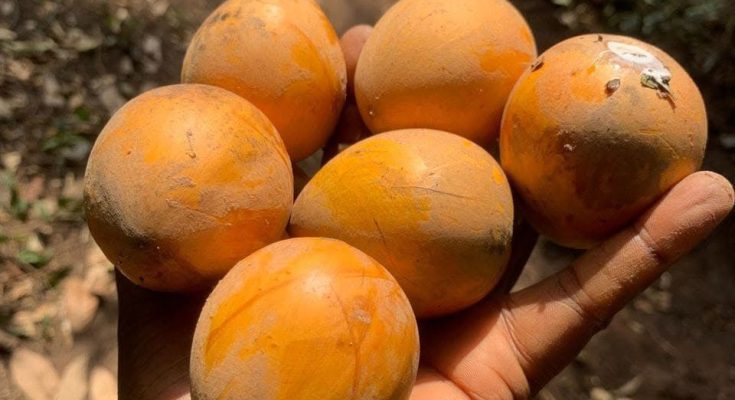Pregnancy is a time of many changes – physical, emotional, and hormonal. One of the most common and peculiar phenomena during pregnancy is food cravings. While many women crave typical snacks, there’s one specific craving that stands out, especially in certain cultures: Udara, also known as African star apple. But why is it that some pregnant women feel an irresistible urge to indulge in this unique fruit? Let’s delve into the myth and the science behind this curious craving.
The craving for udara is often attributed to old wives’ tales and cultural beliefs. Some people say it’s linked to a need for balance or specific nutrients that the body supposedly lacks during pregnancy. In many African communities, it’s believed that eating udara can help improve the health of the unborn child or even ease certain pregnancy-related discomforts. This has led to the widespread notion that udara is a “must-have” during pregnancy.
But what’s the truth behind this craving? While there is no scientific evidence to support the idea that udara has special powers to affect the health of a pregnant woman or her baby, it’s clear that cravings themselves are tied to hormonal shifts in the body. Pregnant women often experience changes in taste preferences and heightened sensitivity to certain flavors and textures, which may explain why some gravitate toward foods like udara, which is sweet, tangy, and refreshing.
The nutritional profile of udara—rich in vitamins, antioxidants, and water content—may also contribute to its appeal. During pregnancy, the body requires more hydration and essential nutrients, and udara, with its refreshing and hydrating qualities, might simply satisfy these needs. It could also be that the texture and flavor of udara trigger a sense of comfort, satisfying an innate desire for particular foods.
Ultimately, while the craving for udara may be rooted in cultural beliefs and myths, it’s important to remember that food cravings during pregnancy are perfectly normal and vary from person to person.
Understanding the body’s signals and listening to what it needs is essential, but moderation is key to ensuring that cravings do not interfere with a balanced, healthy diet. So, the next time you reach for udara, know that it’s not just about a myth—it might just be your body’s way of responding to the beautiful journey of pregnancy.
Ultimately, while the craving for udara may be tied to cultural beliefs and myths, it’s important to recognise that food cravings during pregnancy are normal and unique to each individual. These cravings are often the result of hormonal changes in the body and can reflect the body’s natural desire for specific nutrients or sensory experiences. Listening to your body and understanding these signals is crucial, but it’s also important to maintain a balanced diet to support both the mother’s and baby’s health.
So, whether you find yourself reaching for udara or any other unusual food, remember that pregnancy cravings are part of the experience. While they might be steeped in tradition or myths, they also highlight the fascinating ways our bodies adapt to this incredible journey.
